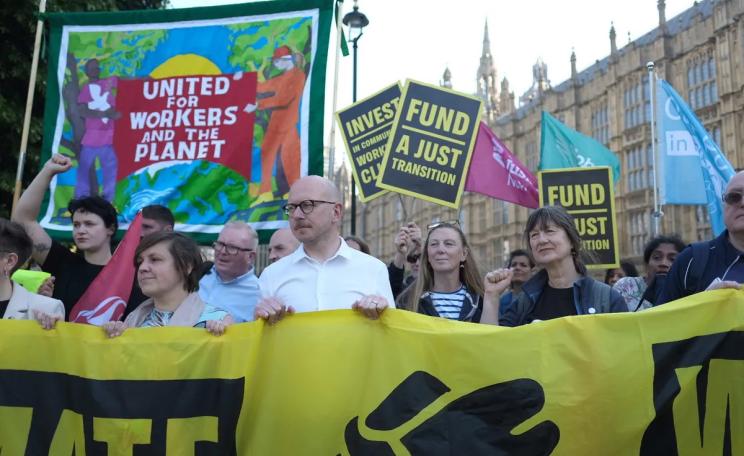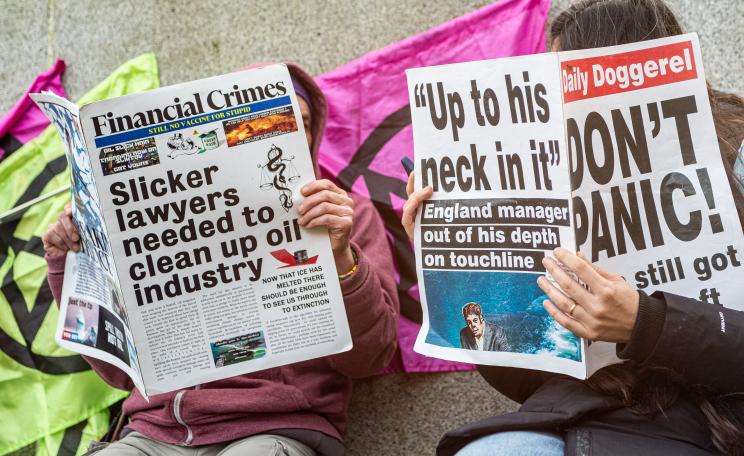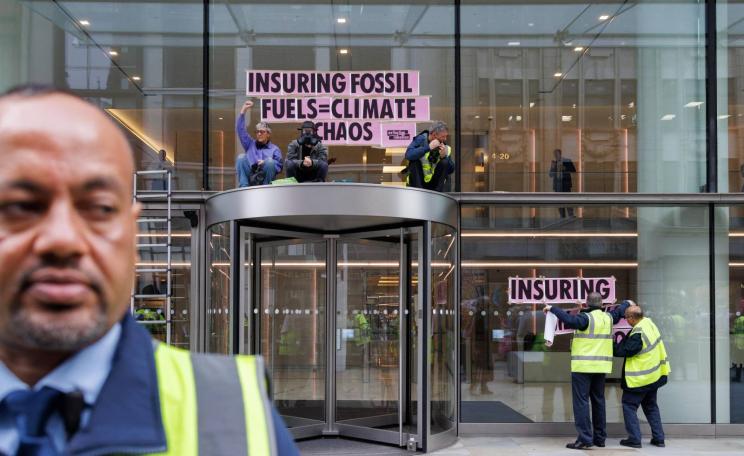The failure of the regulators is now obvious.
Sir Hugh Myddelton financed and oversaw the building of an artificial waterway, the New River, to bring fresh water from springs in Hertfordshire to a reservoir in Islington In 1613.
The project was to ensure people in London could access clean drinking water rather than rely on the brackish water of the Thames, so as to improve public health.
It almost didn’t happen: a huge capital input was required before there would be any financial return and the city was reluctant to make this investment. Where have we heard that before?
Pace
Potable water was made available to all. But the River Thames became little more than an open sewer and a public health hazard to Londoners. Between 1848 and 1866 a series of cholera epidemics killed almost 100,000.
In response to this, in 1875, civil engineer Joseph Bazalgette heroically completed a sewerage system for central London which was instrumental in relieving the city of cholera epidemics, while beginning to clean the Thames.
How far we have regressed. How little we have learned from those progressive times.
While science and technology have advanced at an incredible pace since the Enlightenment, corporate greed has dragged us back into a dark age.
Profits
The owners and shareholders of the utilities that are essential for life have correspondingly put profit over the planet and opened the door to a return of the pestilences of old.
The Water Services Regulation Authority (Ofwat) is tasked with overseeing the regulation of the privatised water and sewerage industry in England and Wales.
Its role, supposedly, is to ensure that water companies protect and enhance the environment for future generations.
However, the green light given to the water industry by the last administration to prioritise shareholder profits over the health of rivers and beaches makes clear who really holds power in regulatory decisions.
Salvage
Indeed, regulations passed by the last Conservative government permit water companies to continue discharging sewage into rivers and seas for the next fifteen years.
Ash Smith, of the group Windrush Against Sewage Pollution (WASP), responded to this edict: “The failure of the regulators is now obvious.
"The reasons why supposedly highly regulated water companies have done so well by exploiting captive bill-payers should, we think, be an important subject for the secretary of state ultimately responsible for the sewage scandal. ‘Regulatory capture’ or worse are obvious features that surely require investigation.”
The failure of the regulators is now obvious.
So where is the investigation? Where is the reversal by the current Labour government of this shameful mandate?
Water Pressure is an alliance instigated by Dirty Water and Extinction Rebellion to campaign for a Citizens’ Assembly on water which will consider the best mechanisms for people to agree courses of action to salvage human and ecological health from unacceptable risks to us all.
Prevail
It will consider how to successfully engage with our government who remain in service to a dying economic orthodoxy. Such an alliance is needed to address all aspects of the water crisis. Everything is interconnected. Fixing sewage alone won’t clean rivers.
Conservation, land rehydration, flooding, soil health, toxic landfills, agriculture, industry, water utility structures and regulation all need to be considered in planning for a clean water future. Water sports enthusiasts should also be included as they serve as daily monitors of water ecology.
Sewage from agricultural runoff accounts for 40 per cent of all pollution. Forever chemicals, plastics, toxic landfill seepage, as well as human waste, can still be smelt in the Thames today.
Just as Hugh Myddelton overcame the opposition of landowners who feared that the New River would reduce the value of their farmland; just as Bazalgette stood up to the vested interests of politicians, so must we prevail over the current enemies of health, the would-be purveyors of disease, that have taken us back to a dark age of unabated greed.
Through a citizens’ assembly, Water Pressure aims to do just that.
This Author
Tom Hardy FRSA has over 40 years of experience in education, serving as literary editor for the International Journal of Art and Design Education, a columnist for the Times Educational Supplement, and author/editor of several academic works on educational practice. He has worked as an education consultant for the Prince's Teaching Institute and subject lead for the Qualifications and Curriculum Development Agency reporting to the Department for Education. Since 2018, he has been part of Extinction Rebellion's media and messaging team.







